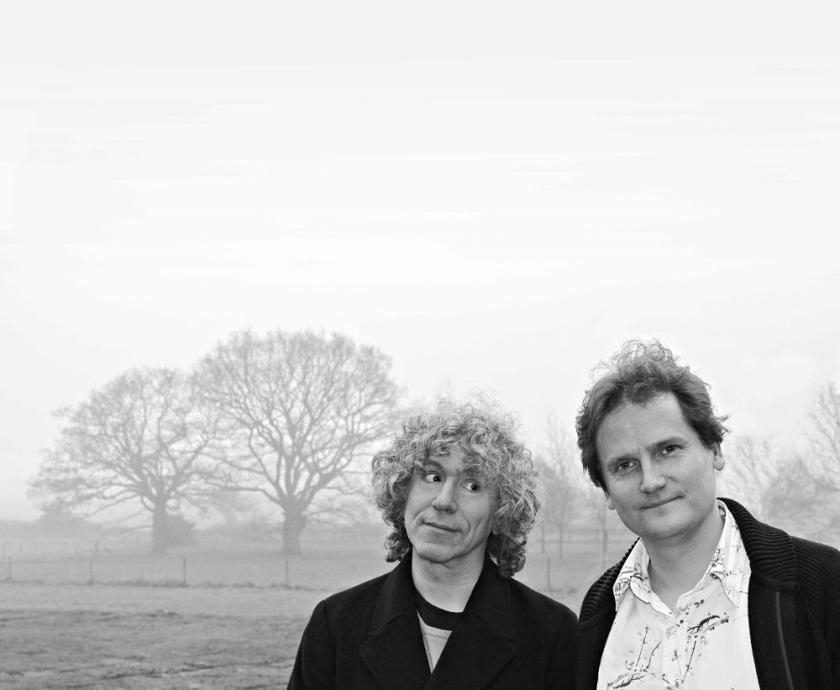For a BBC Radio 3 lunchtime's hour of music, cellist Steven Isserlis's latest collaboration with that most individual of pianists Olli Mustonen went astonishingly deep. The surprises were equal in its two halves - the first a through-conceived programme of shortish late Schumann pieces plus a Schumann homage composed by Mustonen the composer for Isserlis and poetically embedded in the sequence; the second an interpretation of Prokofiev's late Sonata for Cello and Piano which scotched with high, focused drama the usual claims that this is a light and simple work.
Mustonen has a penchant for breaking up legato lines with his own hyper-staccato highlighting of individual notes, potentially better for Prokofiev than a 19th century romantic; how was that going to work with Isserlis’s more introspective tone in Schumann’s Three Romances? Surprisingly well, offering contrast rather than perverse eccentricity, an unorthodox weave of piano and cello lines which evolved naturally into Mustonen’s choice of a minor-key strain from the Album for the Young, a spellbinding, unforced "Sheherazade" and the two “Wintertime” pieces together to bring a touch of extroversion.
Prokofiev died, too early, surrounded by the insanity of the late Stalin years
Isserlis’s solo spot, following straight on in this unbroken strand, stayed in the deep waters with Mustonen’s own free-range meditation on the “Frei aber einsam” (“Free but lonely,” the notes F, A and E) motto of Joseph Joachim, subject of the late composite Violin Sonata from which we heard the first of Schumann’s two contributions, the Intermezzo, transcribed for cello and piano, a perfect, discreetly melancholy coda here.
Heroic C major with the cello in lowest register is the fresh opening gambit of Prokofiev’s 1948 Sonata, seemingly a total contrast with introspective Schumann. But there is more to the composer in late, seemingly simpler style than just interesting sonorities and gorgeous, original melodies, and Prokofiev can flick a switch into sadness and depression too. Free in spirit if not in outward circumstances, but certainly lonely at times too, with a resilience that’s moving whether you know the circumstances of Prokofiev’s harrying back in the Soviet Union or not. This reflective programme fed fanciful, only-connect thoughts: Schumann ended up in a madhouse, but still managed to compose, and Prokofiev died, too early, surrounded by the insanity of the late Stalin years.
 How the first movement’s wildly disparate strains work together became a life-and-death drama in this revelatory, impulsive but never over-urged interpretation. Isserlis brought witty new inflections to the character-piece of the central movement’s outer panels, and if his way with one of the composer’s greatest, most generous melodies was more impetuous than that of aristocratic Rostropovich, for whom the piece was written (pictured above with the composer), that could be valid, too.
How the first movement’s wildly disparate strains work together became a life-and-death drama in this revelatory, impulsive but never over-urged interpretation. Isserlis brought witty new inflections to the character-piece of the central movement’s outer panels, and if his way with one of the composer’s greatest, most generous melodies was more impetuous than that of aristocratic Rostropovich, for whom the piece was written (pictured above with the composer), that could be valid, too.
Richter was the pianist at the premiere, and Mustonen dealt with the finale’s unusual demands on his own terms, hurling himself audaciously into the spirited tumult for teamwork on the brink of absurdity, but staying on the cliff long enough to get to the cello’s final heroic gesture. Calm was restored with the encore, Mustonen keeping unruffled pure supporting legato for an ineffable cello lullaby in the second of Schumann’s Fünf Stücke im Volkston. Personably sincere as ever, Isserlis dedicated it to the memory of Neville Marriner's bright spirit.















Add comment